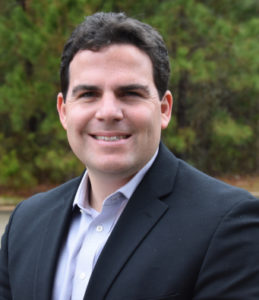The majority of Americans, particularly in the southern United States, receive their healthcare through rural health facilities. These facilities often include rural or critical access hospitals, rural health clinics and/or community health centers, and other rural providers. Statistics show that rural health is less expensive with greater quality care measures than its urban counterparts, yet the stigma behind rural health is still seen as inferior to urban healthcare. Further, access to appropriate services is often different from community to community, with great barriers to behavioral health, oral health, and various primary health care needs being unmet.
So, what can be done to help elevate these issues? One of several possible measures includes the use of telehealth services.
Tele-psychiatry services help to connect patients with psychiatrists for treatment of all types of behavioral health needs. Other innovative services such as tele-physical therapy, tele-pharmacy, tele-stroke, and others help to expand services provided through both in-patient and out-patient needs. Currently, outpatient rural health facilities are only able to receive the technology fee for services.
However, there may be an additional benefit to providing telehealth beyond just receiving a technology fee. By being a true patient centered medical home (PCMH), patients will continue to return to these out-patient facilities for services rather than “clinic shopping,” therefore making telehealth as much as a marketing investment as it is a direct service for reimbursement. Leveraging these returning patients along with proper case management services, a facility can track and influence patient health.
It is well known that rural health facilities struggle to find an adequate number of providers, with a particular problem of recruiting and sustaining specialty care. Leveraged telehealth services such as tele-dermatology, facilities can provide specialty care for their population and become a trusted provider of said services. Again, the facility may receive nothing more than a technology site fee as a result of the direct service, but the benefit of more returning patients will increase census and provide more services available for the full encounter rate.
From the patient perspective, having a greater access to services in rural areas is a game-changer. Many times when rural citizens are surveyed on their feelings about living in a rural area, most will cite a calmer life, reduced cost of living, and a more wholesome living environment as the top reasons for living rural. When you survey the negatives to living rural, access to healthcare is almost always at the top of the population’s concerns. As we grow access to expanded forms of care through telehealth, this leading concern will begin to lessen and eventually become a secondary or even a tertiary concern.
There is little question that telehealth is the wave of the future for healthcare, but it’s a wave that will only increase as fast as the market will allow. Patients want the on-demand capability and instant gratification of telehealth access, and the cost-effective nature of the service will allow both direct and indirect forms of telehealth to be a market-demanded wave of innovation. As rural clinics and hospitals begin to buy-in and properly utilize telehealth services, they will begin to draw patients to their facilities and increase the opportunity to care for them. This will be one great way to solve our rural health crisis in America and drive innovation with increased access to care.
Ryan Kelly
Executive Director
Mississippi Telehealth Association
www.mstelehealth.org
Ryan Kelly, MS, is a Mississippi native and founder/CEO of Horizon Professional Services. He previously served as Chief Advancement Office for William Carey University and Director of External Relations for The University of Southern Mississippi College of Health.
Kelly earned a bachelor’s of science with honors from The University of Southern Mississippi in 2005 and a master’s of science with honors from Mississippi College in 2007. He is a graduate of the Area Development Partnership’s Leadership Pinebelt, received the Mississippi Top 50 under 40 award in 2016, and received the Mississippi’s Top Entrepreneur award in 2019. In addition to professional activities, Kelly also serves as a deacon at Temple Baptist Church,, member of The Gideon’s International, board member for Pi Kappa Phi Alumni Association and the United Way of Southeast Mississippi, and many others. His areas of professional interest and expertise include healthcare, education, business, technology, economic development, and politics.







